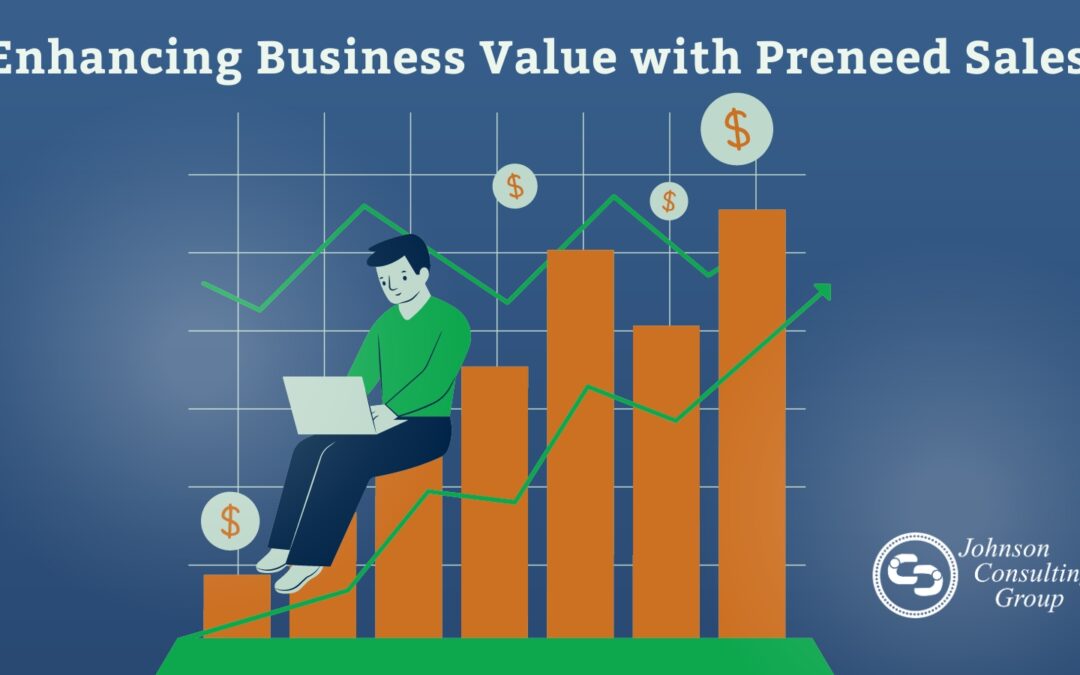At Johnson Consulting Group, we evaluate four key areas within a funeral business to gauge its success: financial, workplace, customer service, and marketplace. In this article, we focus on the marketplace, particularly preneed sales, and their impact on the business’s overall value.
Preneed Sales: Asset or Liability?
One of the frequent questions we encounter is whether preneed sales are an asset or a liability for a funeral business. The answer is both. In accounting terms, preneed sales are considered deferred revenue, which is technically a liability. However, the value of a robust preneed book of business is invaluable for future enterprise value.
Starting with Preneed Programs
There are numerous third-party marketing companies that can assist with implementing preneed programs, or you can manage it in-house. Regardless of the method, setting a monthly sales target is crucial. Ideally, for every at need contract, we aim to replace it with 1 to 2 preneed contracts.
Our analysis of various funeral homes across the United States and Canada indicates that preneed contracts typically represent 35% of the annual at need case volume at a funeral home. This statistic is often referenced when evaluating the value of the preneed book of business. For instance, a funeral home with $5 million in their preneed account, might see only 35% of that amount come to fruition annually. In other words, that represents 35% of the total at need revenue for the year. Then, taking into consideration the correlating operating expenses of the business, the result is excess cash. This method creates a simple view of how to determine the value of the contribution of the preneed total book of business.
For further insight, consider a funeral home with an annual revenue of $1 million (excluding cash advances), where $350,000 of that revenue is derived from preneed contracts converting to at need. This revenue then incurs expenses, and the resulting EBITDA (Earnings before Interest, Taxes, Depreciation, Amortization) is multiplied to determine the business’s value. Additionally, preneed sales help lock in today’s family preferences, which is crucial as trends like rising cremation rates continue.
Importance of Monitoring and Training
We believe that what gets measured gets done. Therefore, having a budget, weekly sales reviews, and consistent funeral home training in customer service are essential. Even funeral businesses experiencing a decline in at need volume often maintain consistent preneed case volume. This consistency highlights the loyalty families feel when they pre-plan and return to the same funeral home.
Conclusion
When asked if a preneed program is an asset or liability, it is clear to us that it is a significant asset that enhances the value of a funeral business. However, careful planning and monitoring are necessary to ensure that preneed sales do remain an asset and not a liability. At Johnson Consulting Group, we conduct numerous contract analysis studies and provide strategic planning guidance to ensure the effectiveness of these programs. Our partnerships with third-party experts further support our clients in maximizing their business value through preneed sales.
If you want to know more about increasing the value of your business, feel free to reach out to us at Johnson Consulting Group.
Contact Us Today
